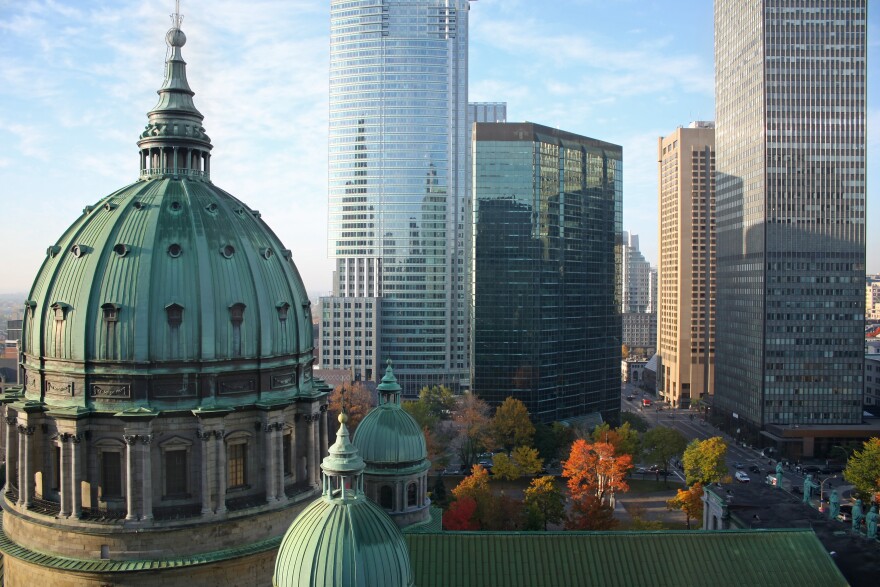The province of Quebec is experiencing a second wave of COVID-19 infections.
Case numbers have climbed significantly since early September. On Monday, more than 1,000 cases were reported, compared to about 400 in a day one month ago. Hospitalizations have also increased, though the number of deaths from the disease have not risen much.
To give a sense of what things are like right now in the province, Montreal Gazette reporter Aaron Derfel spoke with VPR’s Henry Epp. Their conversation below has been edited and condensed for clarity.
Henry Epp: Caseshave been climbing across Quebec. So first, can you tell us what kind of restrictions and rules are in place right now to try and control the virus?
Aaron Derfel: So since Oct. 1, bars have closed as well as the dining areas of restaurants. Gyms have closed in these so-called “red zones.”So that's where the government is using the case-incident rate: If there are more than 100 cases per day, averaged over seven days in a region, plus they look into the capacity of the health care system to absorb cases and they look at outbreaks, and if the numbers are rising as they have, they declare a region to be a red zone. And in those regions, as I said, bars and dining areas in restaurants are closed. But schools are open, although in high school you have to wear a mask in class.
And what's the general feeling right now in the Montreal region now that this second wave is clearly happening?
So during the first wave, schools were closed at the elementary level and the high school level. Schools have since reopened, so there's a lot of anxiety. Parents are worried because outbreaks are occurring in schools and in daycares. So they've had to close a few schools in Montreal and a couple of daycares. So among parents, there's a heightened sense of anxiety. People are antsy, they're suffering from some degree of COVID fatigue. But in general, there's this feeling of fear and trepidation, and it’s mounting actually.
You mentioned some of the fatigue, but are people generally complying with the restrictions that are in place, or taking the same amount of precautions that they were earlier?
Well, there are sporadic cases where people are not following the guidelines. There have been the anti-masking protesters, so there's always that contingent. You know, in this environment of extensive restrictions, you do get pent up frustration. For the most part there is compliance, but you do have the so-called pockets of noncompliance.
More from VPR: Reporter Debrief: COVID-19 Cases Tick Up In Quebec, Premier Threatens A Lockdown
In terms of the health care system, do hospitals have enough capacity right now to handle more COVID patients that may be coming in?
In the Montreal area, we do have the capacity. But in the provincial capital, which is Quebec City, you know, it's rapidly losing that capacity. And there have been outbreaks in a cardiac hospital, so that's a big concern. But in terms of the Montreal [health] care system, it's so far early in the second wave, we haven't reached the point where it's been overwhelmed.
And then just finally, Aaron, in terms of how people are coping with this right now, do you have a sense of what people are doing to get by, to try to make it through this really difficult period?
That's a hard question to answer. I mean, people are living like hermits. It's kind of mixed, but the streets are not nearly as busy. You know, downtown Montreal, less than 25% of office workers are working in the office. So there's this bizarre, surreal atmosphere that's descended upon this city, a city that's known for its bonne vivance, and it's cosmopolitan.
People are hunkered down and there’s this feeling of apprehension because we don't know when a vaccine will become widely available. So it's just this malaise and this apprehension that everyone is feeling. And, you know, you're trying to make the best of really these difficult and unprecedented circumstances.
Have questions, comments or tips? Send us a message or get in touch with reporter Henry Epp @TheHenryEpp.
We've closed our comments. Read about ways to get in touch here.




